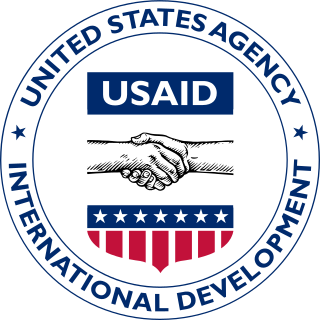
The United States Agency for International Development (USAID) is an independent agency of the United States government that is primarily responsible for administering civilian foreign aid and development assistance. With a budget of over $50 billion, USAID is one of the largest official aid agencies in the world and accounts for more than half of all U.S. foreign assistance – the highest in the world in absolute dollar terms.

Mercy Corps is a global non-governmental, humanitarian aid organization operating in transitional contexts that have undergone, or have been undergoing, various forms of economic, environmental, social and political instabilities. The organization claims to have assisted more than 220 million people survive humanitarian conflicts, seek improvements in livelihoods, and deliver durable development to their communities.
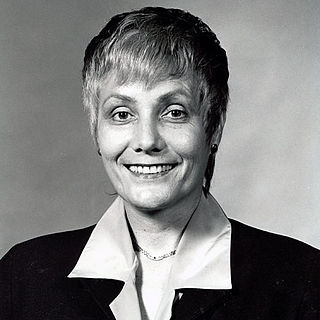
Loret Miller Ruppe was a Director of the Peace Corps and US Ambassador to Norway. She was the wife of U. S. Congressman Philip Ruppe of Michigan.
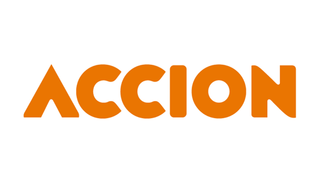
Accion is an international nonprofit. Founded as a community development initiative serving the poor in Venezuela, it works with local partners in different countries to develop and scale digital financial solutions for underserved people globally.

Geekcorps is a non-profit organization that sends people with technical skills to developing countries to assist in computer infrastructure development.
Sol Myron Linowitz was an American diplomat, lawyer, and businessman.
Volunteers for Economic Growth Alliance (VEGA) was an umbrella group consisting of 23 economic development organizations that integrate highly skilled volunteers into programs. VEGA is usually contracted by United States Agency for International Development (USAID) for specific projects that involve one or more of the Member organizations. The organization was headquartered in Washington, DC and its members have offices around the world in developing/transitioning economies where USAID operates.
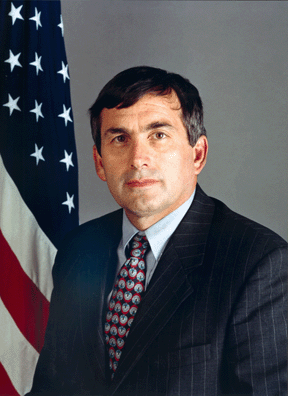
Thomas Joel Miller is an American diplomat and three-time U.S. ambassador who served from 2010 until 2018 as president/CEO of International Executive Service Corps (IESC). IESC is a 50-year-old non-profit started by David Rockefeller and other prominent American businesspeople focusing on creating prosperity and stability through private enterprise; it has worked in over 130 countries.

The United States established diplomatic relations with Malawi in 1964 after Malawi gained independence from the United Kingdom. Malawi's transition from a one-party state to a multi-party democracy significantly strengthened the already cordial U.S. relationship with Malawi. Significant numbers of Malawians study in the United States. The United States has an active Peace Corps program, Centers for Disease Control and Prevention, Department of Health and Human Services, and an Agency for International Development (USAID) mission in Malawi. Both countries have a common history and English language, as they were part of the British Empire.
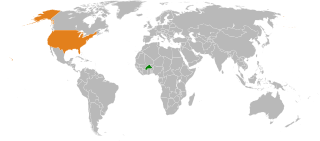
Relations between Burkina Faso and the United States are good, but has been subject to strains in the past because of the Compaoré government's past involvement in arms trading and other sanctions-breaking activity.
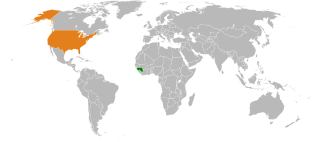
Guinea – United States relations are bilateral relations between Guinea and the United States.

Liberia – United States relations are bilateral relations between Liberia and the United States. The two countries shared a close relationship until the 1970s.

Senegal–United States relations are bilateral relations between Senegal and the United States.
NetCorps was a volunteer-organizing coalition consisting of nine Canadian non-governmental organizations (NGOs), funded by the Canadian International Development Agency (CIDA) and managed by the NetCorps coordination unit. Through the program, the organizations created international information and communication technologies (ICT) internships in developing countries around the world. Interns typically participated in six-month programs, leaving between August and November for host organizations in the placement countries. Positions were limited to 19–30-year-old Canadian citizens or landed immigrants who had "appropriate information and communication technologies skills". Typical duties included creating webpages, developing databases, computer networking, setting up hardware, preparing manuals and other documentation, and general-to-advanced computer instruction.
The Farmer-to-Farmer (F2F) Program is funded by the US Agency for International Development through the US Farm Bill to assist developing countries, middle-income countries, and emerging markets around the world to increase farm production and incomes. It promotes sustainable economic growth, food security and agricultural development worldwide. Volunteer technical assistance from US farmers, agribusinesses, cooperatives, and universities helps developing countries improve productivity, access new markets, build local capacity, combat climate change and conserve environmental and natural resources. Farmer-to-Farmer also aims to increase the American public's understanding of international development issues and programs and international understanding of the U.S. and U.S. development programs.
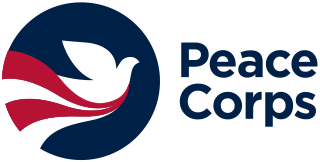
The Peace Corps is an independent agency and program of the United States government that trains and deploys volunteers to provide international development assistance. It was established in March 1961 by an executive order (10924) of President John F. Kennedy and authorized by Congress the following September by the Peace Corps Act.
International Voluntary Services,Inc. (IVS) was a private, non-profit corporation for benevolent, charitable, and educational purposes chartered under the laws of the District of Columbia in 1953 to place volunteers in international humanitarian and development projects. From its founding until its dissolution in 2002, IVS placed volunteers in 39 countries in Asia, Africa, and Latin America. Its largest and longest programs were in South Vietnam, Laos, Algeria, and Bangladesh. Although the organization's roots were grounded in part in Christian pacifism, it operated on a nonsectarian basis, accepting volunteers regardless of their religious beliefs or nationality., Over its lifetime, the IVS program evolved from the placement of only American citizen volunteers to placement of internationally-recruited volunteers and then in later years to recruitment of local volunteers from within the country being assisted. Elements of the IVS program model have been adopted by the U.S. Peace Corps and many present day non-governmental organizations (NGOs). Sections below discuss the IVS program model, activities over time, and legacy.

Aaron S. Williams is an international development expert and a former diplomat. He served as the 18th Director of the Peace Corps from 2009 to 2012 under President Barack Obama.
African-Americans in foreign policy in the United States catalogs distinguished African Americans who have and continue to contribute to international development, diplomacy, and defense through their work with the U.S. Department of State, the U.S. Agency for International Development, the U.S. Information Agency, and the U.S. Congress, and other notable agencies and non-governmental organizations. The creators acknowledge the presence of the interagency contributions to the foreign affairs realm, and welcome additional content to showcase the achievements of African-Americans in other relevant USG agencies.

Carolyn "Carrie" Hessler-Radelet is the President & CEO of Global Communities. In 2017, she served as the President & CEO of Project Concern International (PCI), a San Diego–based international development and humanitarian assistance organization, and spearheaded the merger of the organization with the Silver Spring, Maryland–based Global Communities in 2020. Prior to leading PCI, Carrie was the 19th director of the Peace Corps, from 2014 to 2017. She was the Deputy Director and Chief Operating Officer of the Peace Corps from April 2010 to December 2015, serving as Acting Peace Corps Director from September 2012 until June 2014 when she was elevated to Director. She resigned on January 20, 2017, to join Project Concern International (PCI) as its President & CEO.














